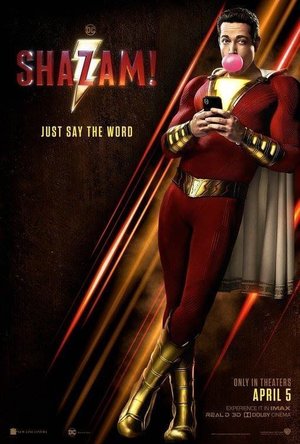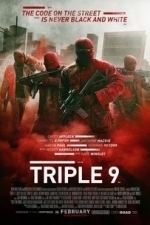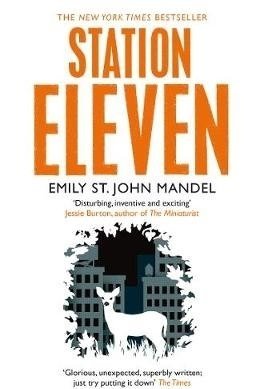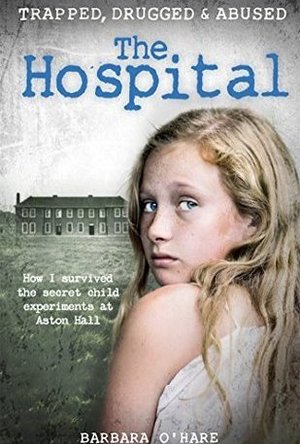Ryan Hill (152 KP) rated Shazam! (2019) in Movies
Jun 22, 2019
Shazam! distinguishes itself as DC's first true crack at a comedy; also it's lightest and most modest effort yet. There's a really nice commitment to the lofty, somewhat ridiculously mythological source material here. There's little liberty taken with Shazam's campy world of wizards, demons and magic; the attitude towards these elements can best be described as self-aware without being self-conscious. The jokes almost all land and there's charm oozing out of every frame. Loads of heart, tons of humor and a true fidelity to childhood joy make this such a uniquely enjoyable flick; and an impressively confident approach to a hero that soars due to it's big personality and earnest attitude.
Our hero's journey here boils down to a kid learning to care about a world that has never bothered to care about him. Abandoned as a child and shuttled through the foster system; the explanation and depiction of Billy Batson's unenviable situation is irreverent and laced with sarcasm, true to how teens often confront traumas that imply vulnerability. The film allows these kids to be kids; meaning they're impulsive and ill-equipped for the situation they're in; and often crude and frustratingly ignorant to a seemingly obvious truth. The premise lends itself to a close look at responsibility and purpose; basically a feature length look at a lost kid reclaiming his identity and finding a family. The point at which Billy truly becomes a hero with something to fight for is powerful; a simple but big-hearted affirmation of the importance of connection and love, especially to a kid who's never allowed himself to know either.
Superhero stories can impart lessons in a variety of ways. Both on the page and on the screen; there's a wide array of films that all excel in their own specific way; shaping themselves in the image of their hero, and what he/she means to readers around the world. Shazam! distinguishes itself spectacularly as a film about what constitutes a family, and how that family reflects who we are. There's a powerful yearning in Billy for a connection; someone or something to fight for. A desperate desire for love and support; to feel like a part of something in some way. There's a meaningful, deeply human core to that concept; something universal and immediately affecting. Shazam! understands this from the start; setting aside the punchsplosians and skybeams for a moment, to remind us that sometimes a kid looking for his mom can be as compelling than the threat of planetary destruction. So bring on Joker, Birds of Prey, Wonder Woman 1984 and whatever else DC has in it's chaotic, ever-changing slate of planned superhero flicks; they're on a roll right now.
Gareth von Kallenbach (980 KP) rated Triple 9 (2016) in Movies
Aug 6, 2019
In the beginning, the film sets its self-up to be a smart and stylistic heist film. However shortly after it begins to feel disjointed as it attempts to develop everyone in its ensemble cast to the point where it hurts the story and some excellent performances become forgettable. It’s a shame because somewhere in this film is potentially two excellent separate films. One film about a crew having to complete a heist for the mob to save their lives and loved ones, and another about dirty cops, their partners and the moral ambiguity of the code on the streets. In Triple 9, these two premises never really get developed on one side or the other and thus everything is just left there.
On the heist side, Chiwetel Ejiofor plays ex-mercenary Michael Atwood. Michael is the careful and calculating leader of the crew, but is tied to the Russian mafia through the mother of his son. Michael is constantly being coerced by the Russian Mob Boss, played by Kate Winslet. The two give stellar performances, most notably Winslet who is cold and ruthless in wielding her power, speaking her mind and not caring how the job gets done as long as it gets done.
On the cop side, Anthony Mackie plays dirty police detective Marcus Belmont who becomes partnered with the ex-marine turned rookie detective Chris Allen (Casey Affleck). Belmont feels that the rookie doesn’t respect the streets and his “Do-gooder” “make a difference” attitude is going to get him killed. When Belmont’s heist crewmate Jorge Rodriguez (Clifton Collins Jr.) learns Chris is also the nephew of the Sergeant Detective (Woody Harrelson) investigating the heist crew, Chris becomes the clear candidate to be set up for the Triple 9. (Convenient huh)
Ultimately, as the story plays out it feels we are always arriving at the end of the meeting to plan the coming events. From the planning of the heist, to the set up murder, and to the exit plan, we are just carried through the motions without much motivation of how or why things have to play out the way they do. As a result, I didn’t really care for any of the characters good or bad, unlike other films of this nature. Even Ejiofor’s character Michael, who has his child involved, doesn’t get the opportunity to really show why the rest of the crew respects him and follows him, or why he needs to stay alive for his son, who basically seems better off being taken care of by the Russian mob.
In the end Triple 9 is not a bad movie, it just isn’t really a great one either. It has strong performances by the entire cast and has the makings of something great, but fails to deliver on that opportunity with a disjointed story trying to focus on too many characters. This makes it ultimately forgettable compared to other heist films of similar nature.

Baby Connect (Activity Log) for iPad
Medical and Health & Fitness
App
Picked by Apple as a featured App for Busy Moms, Baby Connect is the #1 and the most comprehensive...

Baby Tracker App - Glow
Medical and Health & Fitness
App
Glow Baby will help you log and time all aspects of your baby’s care: from bottle feeds, to...

Sarah & Duck - Day at the Park
Games and Education
App
Sarah & Duck - Winner of the 2014 Best Pre-School Animation BAFTA The Official BBC Sarah & Duck...
Hazel (1853 KP) rated Station Eleven in Books
May 30, 2017
The dystopian idea of a virus wiping out most of the world’s human inhabitants is not a new concept. It has be done and retold over and over again. Emily St. John Mandel’s invention of the Georgian Flu is no different from these. Brought to Canada and the USA by a passenger on a plane from Russia, the highly contagious virus spreads quickly from person to person, town to town, and once caught you are dead within forty-eight hours.
The difference between Station Eleven and other novels of apocalyptic themes is that the story takes place primarily in two time periods – pre-Georgian Flu and twenty years post-Georgian flu – rather than during the outbreak and the immediate days after (although there are a few scenes written within that timeframe). It is difficult to explain the storyline without giving too much away. Although the death of millions of people is a vital feature, it is the lives of the characters that are important. All the significant characters are in some way linked to one man, Arthur Leander, and, particularly in the case of one individual, a graphic novel titled Station Eleven.
The book opens in Toronto with Arthur, a Hollywood actor, starring in a stage production of King Lear. Despite the quick reaction of trainee paramedic Jeevan, Arthur dies of a heart attack after suddenly collapsing during the forth act. Then suddenly, that same night, the Georgian flu makes its first appearance in Canada. Despite this occurring right at the beginning, it is not the last the reader sees of Arthur. Throughout the story the author returns to Arthur, recounting scenes of his life from acting career to his three ex-wives and only child.
Twenty years after the Georgian flu, Kirsten Raymonde, who starred as a child in the same production of King Lear, is part of the Traveling Symphony: a group of actors and musicians walking from decaying-town-to-town performing a number of Shakespeare plays as they go. With her she carries two Station Eleven comics that Arthur gave her before he died – incidentally written and drawn by his first wife. Most people that the Symphony encounter are accommodating and are trying their best to live in a world of no electricity or health care, but then they meet a man who calls himself the Prophet. Believing that he has been given a duty by God to repopulate the world he preaches to the people telling them that everything happens for a reason, likening the epidemic to Noah’s flood in the Bible. However it soon becomes clear that he is a dangerous character.
In a way it is heartening to imagine that high culture (such as Shakespeare and orchestral music) survives in a world that has been destroyed. Shakespeare was born in a time before all the modern inventions relied upon today, and now, in this novel, it is once again an electricity-less era yet these historical things live on.
One problem with Station Eleven is that it is hard to pinpoint the exact plot line. There is the life story of Arthur Leander, his wives and a close friend. Then there is Kirsten living a completely different life. Nonetheless it is still an incredibly fascinating book. Although it flits between time periods it is thankfully not as confusing as some may imagine it would be.
Even though dystopian novels of this nature have been done before, Station Eleven is definitely a book to read; and through it all it poses the question of how you, the reader, would survive in such a world.
Hazel (1853 KP) rated Station Eleven in Books
Dec 7, 2018
The dystopian idea of a virus wiping out most of the world’s human inhabitants is not a new concept. It has be done and retold over and over again. Emily St. John Mandel’s invention of the Georgian Flu is no different from these. Brought to Canada and the USA by a passenger on a plane from Russia, the highly contagious virus spreads quickly from person to person, town to town, and once caught you are dead within forty-eight hours.
The difference between <i>Station Eleven</i> and other novels of apocalyptic themes is that the story takes place primarily in two time periods – pre-Georgian Flu and twenty years post-Georgian flu – rather than during the outbreak and the immediate days after (although there are a few scenes written within that timeframe). It is difficult to explain the storyline without giving too much away. Although the death of millions of people is a vital feature, it is the lives of the characters that are important. All the significant characters are in some way linked to one man, Arthur Leander, and, particularly in the case of one individual, a graphic novel titled <i>Station Eleven</i>.
The book opens in Toronto with Arthur, a Hollywood actor, starring in a stage production of <i>King Lear</i>. Despite the quick reaction of trainee paramedic Jeevan, Arthur dies of a heart attack after suddenly collapsing during the forth act. Then suddenly, that same night, the Georgian flu makes its first appearance in Canada. Despite this occurring right at the beginning, it is not the last the reader sees of Arthur. Throughout the story the author returns to Arthur, recounting scenes of his life from acting career to his three ex-wives and only child.
Twenty years after the Georgian flu, Kirsten Raymonde, who starred as a child in the same production of <i>King Lear</i>, is part of the Traveling Symphony: a group of actors and musicians walking from decaying-town-to-town performing a number of Shakespeare plays as they go. With her she carries two <i>Station Eleven</i> comics that Arthur gave her before he died – incidentally written and drawn by his first wife. Most people that the Symphony encounter are accommodating and are trying their best to live in a world of no electricity or health care, but then they meet a man who calls himself the Prophet. Believing that he has been given a duty by God to repopulate the world he preaches to the people telling them that everything happens for a reason, likening the epidemic to Noah’s flood in the Bible. However it soon becomes clear that he is a dangerous character.
In a way it is heartening to imagine that high culture (such as Shakespeare and orchestral music) survives in a world that has been destroyed. Shakespeare was born in a time before all the modern inventions relied upon today, and now, in this novel, it is once again an electricity-less era yet these historical things live on.
One problem with <i>Station Eleven</i> is that it is hard to pinpoint the exact plot line. There is the life story of Arthur Leander, his wives and a close friend. Then there is Kirsten living a completely different life. Nonetheless it is still an incredibly fascinating book. Although it flits between time periods it is thankfully not as confusing as some may imagine it would be.
Even though dystopian novels of this nature have been done before, <i>Station Eleven</i> is definitely a book to read; and through it all it poses the question of how you, the reader, would survive in such a world.
Necole (36 KP) rated The Hospital: How I Survived the Secret Child Experiments at Aston Hall in Books
Aug 12, 2018
When she was 5 with the emotional and physical abuse she endured from her father and the "mum" her father left her with. I couldn't believe her father would call her a dirty little tinker and belittle her like that and made her think she was nothing. And the "mum" she was left with, leaving her by herself, treating her the way she did, and using Barbara as a way to get money is such a disgrace.
And then when her dad had a son, to read how the two were treated completely differently all because of blood line, oh my heart went out for poor Barbara.
Unfortunately the abuse and turmoil continued after she was put in homes and then into the hospital. To read what happened in the hospital and what the Dr. did she Barbra and the other poor girls, I was in complete shock. Aston Hall was a complete nightmare and how any girl survived that is amazing in itself.
She finally was treated with dignity and love and kindness when she went to Blackbrook by some of the nuns, only to have that taken away and be mistreated yet again.
I commend Barbara for writing this story, to open our eyes to an event that occurred in 1971, and be brave enough to tell us her story. I praise the fact that she could over come all these obstacles in life and be how she is now. It is truly astonishing.
I just hate that she voiced what was going on to so many deaf ears and no one listened or believed her until she was in her teen years. I would hope in todays society that this would never happen and people are now more than ever willing to give children a voice, listen to them, and investigate. I wonder if this happened to Barbara now, would the abuse and neglect been stopped sooner.
I would so recommend this book but be prepared for a shocking, emotional and heart wrenching story. I hope Barbara knows now her own self worth and wish she would have known it her entire life.

My Very Hungry Caterpillar
Education, Games and Stickers
App
Care for your very own Very Hungry Caterpillar! Eric Carle’s much-loved character, The Very...

Pronunciation: Minute of Speech – Tarle Speech
Podcast
Tarle Speech and Language was founded in 2005 by Jennifer Tarle in order to empower individuals at...



